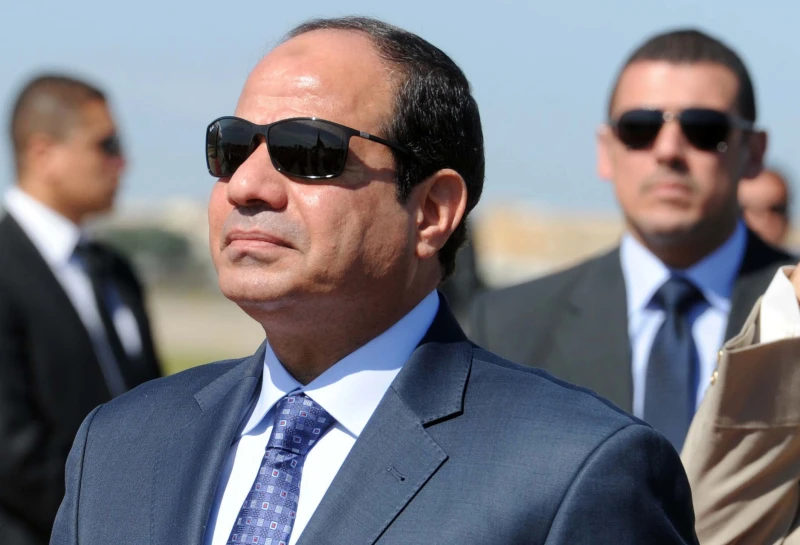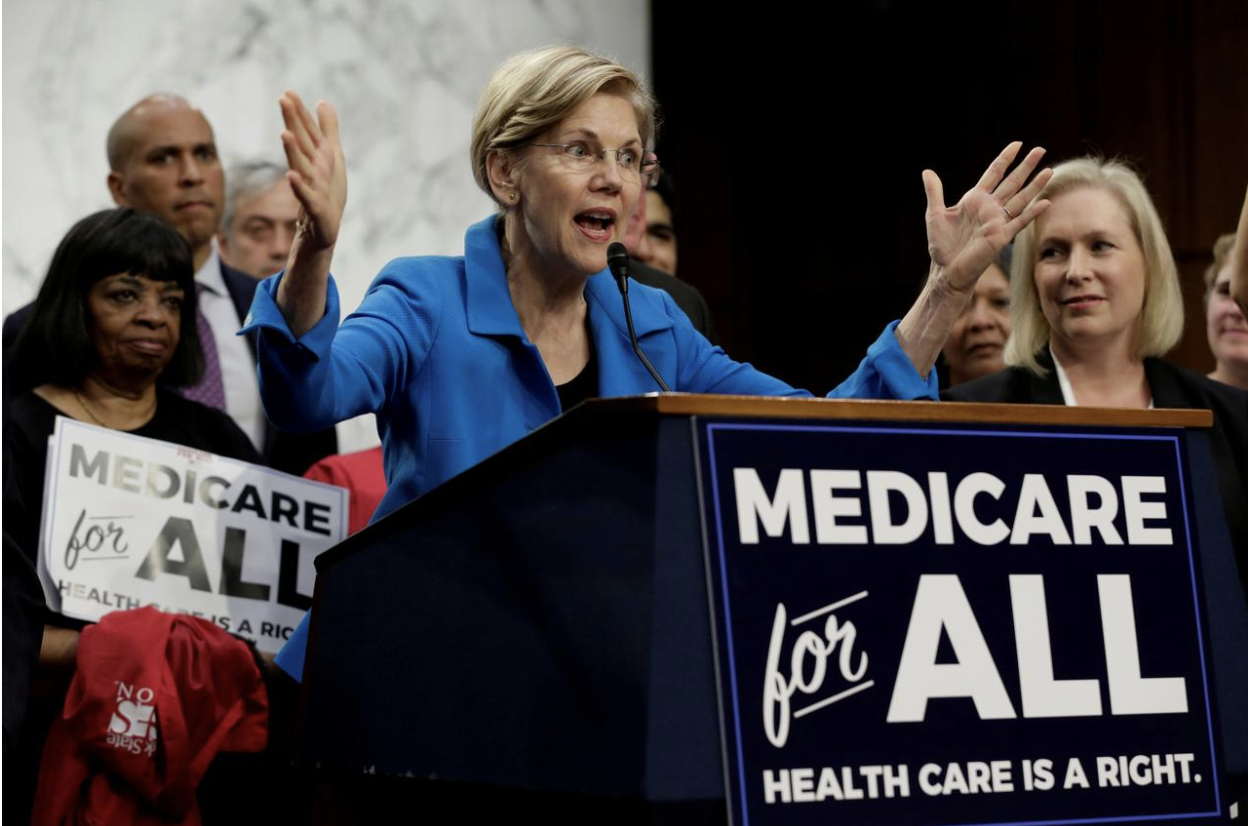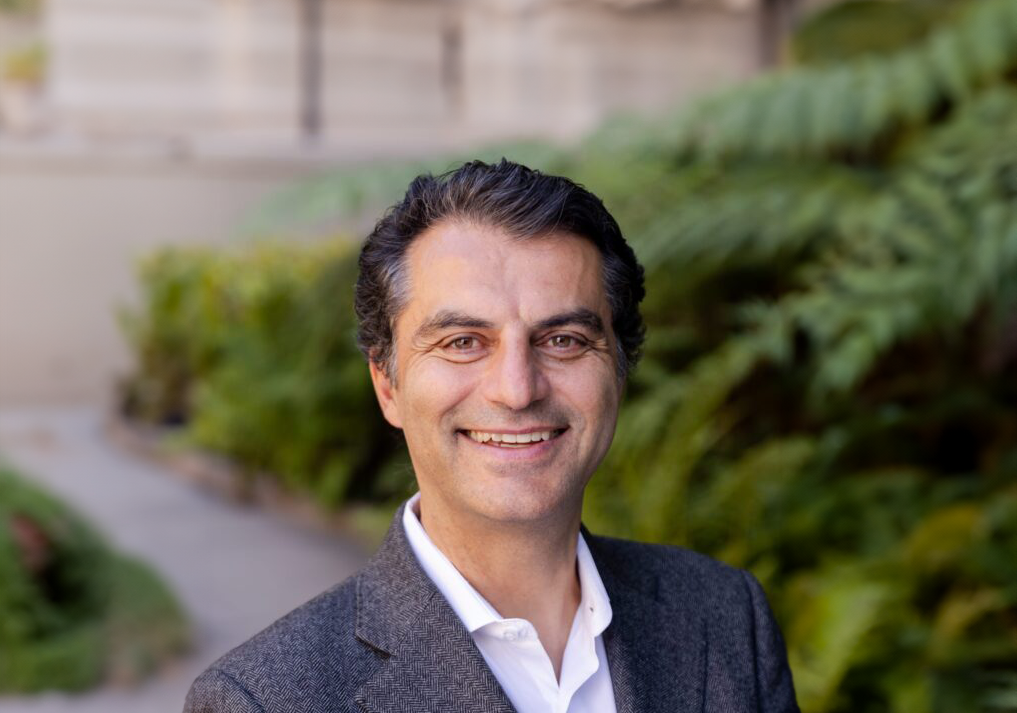
ZACHARY HAGEN-SMITH – 2 FEBRUARY 2023
EDITOR: PALLAVI MURTHY
By the spring of 2022, the desert outside Cairo had a life of its own. Cranes hung over clusters of half-built skyscrapers and hardhat crews teemed through unfinished city districts. When finished, the site — Egypt’s New Administrative Capital — will host roughly 7 million people, plus Egypt’s largest church and mosque, a park twice the size of Central Park, and the Iconic Tower, which, despite being incomplete, has been Africa’s tallest building since 2021. The half-finished city had a sense of grandeur and excitement. Crews numbering in the thousands, plus consultants and engineers, rose early each day to solve this problem or that, thwarting any construction snafus that could derail the mega-project. However, the project’s greatest problem wasn’t mortar or wiring. It was money: why was a country on the verge of bankruptcy spending $60 billion on a brand new capital?
The New Administrative Capital is only the most dramatic instance of Egypt’s economic misdirection, which also includes a $20B island city, a $9B Suez Canal bypass, and a $10B suspension bridge (the widest in the world). These mega-projects fail to benefit the population at-large, instead profiting a small subset. Since President Abdel Fattah El-Sisi rose to power in a violent 2013 military coup, Egypt’s debt has ballooned to well over $130B. More than half of the country’s budget is spent on debt payments, as most Egyptians increasingly struggle to stay afloat. In 2019, the World Bank estimated that a third of Egyptians lived in poverty with another third on the cusp. Rather than spend on them, Sisi’s regime has poured billions into mega-projects, unnecessary military expansions, and other power-consolidating efforts. Egypt has become the IMF’s second largest debtor, owing the lender of last resort over $17B — all accumulated since its 2015 financial crisis.
Fast forward a year and a $3B IMF loan later: Egypt’s currency has lost 40% of its value and prices are skyrocketing. “Even the cheapest food has doubled and tripled. What are we supposed to eat?” a Cairo woman told Al Jazeera. “We were doing all right, but now we’re in the gutter.” Though October’s $3B IMF loan may have solved Egypt’s immediate liquidity crisis, so long as the country’s loans are used to buttress the regime instead of the economy, the country will remain on thin financial ice with its poorest paying the price.
Egypt’s troubles began when Russia invaded Ukraine. The conflict blocked Russian and Ukrainian grain shipments, taking out a third of the world’s traded wheat and shooting prices up 50%. Egypt was a sitting duck. The country relies on food imports, especially grain products which are politically important; Egypt is the world’s largest wheat importer and in the 2020-2021 season most of that wheat came from Russia and Ukraine. Post-invasion, Egypt has had to shell a lot more foreign cash (food commodities are usually priced in US dollars) for a lot less wheat. But the nail in Egypt’s financial coffin came next.
Days after Russia’s invasion, skittish investors sold $1.2B of Egyptian treasury bonds as part of a larger exit from developing economies. Over the next month, foreign groups pulled an additional $22B from Egypt, tanking what had been the decade-long basis of Egypt’s finances.
“In order to keep the cost of its public debt down, Egypt took advantage of the fairly benign conditions of the international bond market around 2016 and ramped up its international borrowing,” said Brad Setser, Senior Fellow at the Council of Foreign Relations.
In the years prior, amid low global interest rates, Egypt lured yield-hungry speculators to its bond market (bonds are a form of debt) by offering high interest rates. This built a reliance on “hot” money — international funds seeking short-term gain off differences in interest rates. So, when inflation-wary central banks began hiking interest rates in 2021, Egypt’s house of cards collapsed.
“As Egypt accumulated more debt and as interest rates on safe US treasuries went up, investors started to focus much more on not only the total stock of Egyptian debt but on the total stock of bonds,” said Setser. Basically, Egypt’s finances were always shaky; the combined impact of rising US interest rates and the War in Ukraine just showed the emperor had no clothes.
As investors took to the hills, Egypt’s other foreign currency sources ran dry: exports lagged; Suez Canal revenues stagnated; sunburnt Russians, historically the backbone of Egyptian tourism, disappeared; and remittances, though plentiful, increasingly skirted formal institutions. By summer, Egypt’s foreign reserves hit a record low. In short, they were screwed.
As catastrophe loomed, Sisi dashed to Saudi Arabia and other Gulf states begging for cash, securing a meager $13B bailout. At the same time, Egypt’s Central Bank, led by bank governor Tarek Amer, launched a 14% devaluation of the Egyptian pound and raised overnight interest rates by 100 basis points. At a March press conference, Amer stated that these policies would make Egyptian exports competitive and preserve foreign currency liquidity. However, this devaluation, like those during the 2015 IMF bailout, did not translate into an expansion in exports or increased competitiveness abroad. Neither the bailout nor devaluation proved to be enough, so, in March, Egypt requested a $12B loan from the IMF.
Though the final $3B IMF agreement reached in October is far below Egypt’s initial ask (and its whopping $16B funding gap) it may be enough to grab the interest of other creditors. Egyptian authorities are optimistic. Finance Minister Mohamed Maait told Bloomberg that the deal is “fully funded,” meaning Egypt’s shortfall will be financed during the 46-month program. Egypt has additionally claimed to be preparing to sell state assets and seeking funding in Asia and the Gulf.
“It’s really the story of a bond market cycle,” said Setser.
A country that doesn’t have much debt discovers it can borrow and borrows too much. Policymakers mess up, economies hurt, lessons are hopefully learned. But there’s a big asterisk.
“While I do agree [with the cycle narrative], the real question is not really why did the crisis hit Egypt, but why was Egypt so vulnerable,” says American University in Cairo professor Amr Adly. “To find ourselves in the beginning of 2022 in pretty much the same situation as we were in 2015 indicates that IMF loans simply do not address the situation.”
Even a generous IMF deal wouldn’t have solved Egypt’s underlying vulnerabilities. While the 2022 crisis began with Russia’s invasion of Ukraine, its fundamental roots — an inability to source foreign currency and reliance on borrowing — are self-imposed.
Egypt’s persistent foreign currency shortages are the product of a speculative and cronyist shift towards non-tradable sectors, namely real estate and construction (which have both been mostly unaffected by the current downturn).
Government-enabled speculation has weaponized land ownership against development needs. “The state, in very artificial ways, creates shortages so that eventually land prices increase,” says Adly. “This is sucking domestic savings and not contributing to any capital-building.” Land and funds that could be put to productive ends — such as manufacturing or alleviating Egypt’s housing crisis — is instead allocated by presidential decree and put towards short-term gain.
While Sisi has divvied up land to the King of Bahrain, Prince of Kuwait, and has even sold strategic islands to Saudi Arabia, the largest landowner in Egypt is the military, whose growing economic influence epitomizes everything wrong with the country’s economy. As of 2019, Egypt’s military managed roughly a quarter of total government spending on housing and public infrastructure, and a diverse business portfolio including firms in construction, oil, school meals, manufacturing, mineral water, movies, olives, and fish farming. Over three quarters of Egyptian military companies have nothing to do with defense-related products whatsoever. In fact, most weapons purchases are not even funded by the military and are suspected to be financed through a combination of foreign aid and loans. The military’s commercial empire additionally benefits from a 2015 decree exempting their businesses from tax, inventory, and valuation.
“Then there are military poaching sprees,” Yezid Sayigh, Senior Fellow at the Carnegie Endowment for International Peace, said. “The armed forces go through and take contracts that would’ve otherwise gone to civilians.”
The military consumes numerous profitable businesses by forcibly acquiring equity, mandating itself board positions, using insider information to buy land from under businesses’ feet. It can get ugly. When the dairy company Juhayna resisted military acquisition, the army jailed its seventy-five-year-old founder and his son over phony connections to the Muslim Brotherhood. The Armed Forces imprisoned and tortured them for two years without any documented evidence.
The military is also neck-deep in Egypt’s mega-projects. It has a majority stake in the company that owns the building land for the New Administrative Capital, and owns several of the site’s construction companies. These mega-projects aren’t out of vanity alone — they’re in power brokers’ financial interest.
While Sisi has promised to reduce the military’s grip on the economy, these promises are ancient history. Sisi has been “promising” to sell state assets since 2018 without follow through. In 2022, he even walked away from a $7B IMF deal to avoid a state exit from the economy. While privatization has a mixed record in Egypt, current levels of military and state involvement are anti-competitive and out of control.
Part of the reason Sisi is so reluctant to privatize state-owned enterprises is that doing so would mean exposing their inept-at-best, corrupt-more-likely balance sheets. So, Sisi has sidestepped selling company stakes on the disclosure-demanding Egyptian Stock Exchange, instead offering a limited number through Egypt’s sovereign wealth fund, which allows financial books to be obscured and the state to maintain control. However, private investors aren’t going to purchase stakes in toxic companies they’ll have no say in. Sisi’s commitment to “privatization” is a non-starter, and Egypt’s economy has suffered as a result.
What Sisi’s economy does for its military friends, it also does for its business friends. As political economist Sarah Smierciak notes in her 2021 book Cronyism and Elite Capture in Egypt, despite the political chaos of the past fifteen years, the make-up of Egypt’s business elite has remained the same. Allies of past regimes kiss the ring, donate a few million to Sisi’s sovereign wealth fund, and become the regime’s boujee friends.
And the things the Sisi regime will do for its friends! Despite rising national debts, Egypt’s rich still don’t have to pay progressive income taxes and, until 2021, didn’t have to pay capital gains either. Egypt’s elite play by their own rules.
After Mohamed Farid Khamis, a Sisi ally and carpet company executive, lobbied the Minister of Supply and Internal Trade, Egypt ditched a Turkey-Egypt trade deal, and instead granted Khamis preferential credit lines with Egypt’s Export Development Bank.
Magdy Rasikh, an oil tycoon and regime backer, got approval to import and supply natural gas despite having been convicted of government corruption and misuse of public funds.
Perhaps no member of Egypt’s business elite has gotten a better deal from Sisi’s clientism than real estate mogul Talaat Hisham Moustafa, who in 2009 was convicted of hiring a hitman to murder his Lebanese pop star ex-girlfriend and only avoided capital punishment by technicality. For Moustafa, the Sisi regime issued a 2017 pardon and complete erasure of criminal records. Today, he can be found on the Forbes list of “Top 100 CEOs in the Middle East” and heading developments in the New Administrative Capital, including Celia, the capital’s largest project, as well as Noor, “Egypt’s first green smart city” though the visualizations look more like an Arrested Development set.
Corruption is at the heart of Egypt’s trade deficit. As the country weaponizes its economy to appease cronyist motives (see: state-sponsored construction of nuclear power and cement plants in a country with surpluses of both), Egypt has failed to gain a competitive edge at home or abroad. Its own domestic industries maintain a heavy reliance on tools, parts, and other “inputs” imported from abroad, sinking Egypt into a deeper dependence on oil exports.
Not only has international involvement failed to alleviate Egypt of its corruption, it has at times exacerbated it. Take American-introduced Qualifying Industrial Zones, peace-building tools that enable duty-free shipping to the US so long as products contain Israeli input. QIZs have allowed economic space formerly occupied by small-scale cotton farmers to be soaked up by Egyptian textile executives, Israeli diplomats, and US lobbyists.
Under the current economic arrangement, Egypt has to shell out a lot more US dollars for zilch in return. This is how Egypt fell into its current hole, and it’s how it’ll fall into it again. The set-up precipitates a chronic balance of payment deficit, cyclical foreign currency shortages, and frequent passing-of-the-hats to the IMF.
So, why on earth would the IMF — or Sisi’s government for that matter — support such self-destructive, destabilizing policies? There are two key conflicts of interest.
The first is geopolitical. Egypt is involved in conflicts from Libya to Sudan and is also an important buyer of foreign arms. Keeping Egypt afloat benefits Western diplomatic and commercial ends. Additionally, Egypt has appealed to socially-conscious investors by issuing sustainable “green bonds”. While these bonds are popular (and seven times oversubscribed!), their environmental impact is dubious. Some bonds fund projects in the New Administrative Capital, which has been criticized for aggravating water shortages and disrupting desert ecosystems.
If Egypt doesn’t get its loans, Sisi could also renege on EU Border Control deals and flood the continent with immigrants. During the 2015 crisis, Egypt leveraged migration concerns to receive the largest possible amount of European financial aid. Gulf countries also find political gain in propping up Sisi, if only to avoid another Morsi-like political enemy and reduce the risk of a democratic or Iran-aligned regional wave.
The other conflict of interest is domestic. Egyptian legislators and elites can enact bad economic policy because they’re shielded from its worst effects. While 20% consumer inflation may make eggs a luxury for most Egyptians, wealthier policymakers have more elastic pocketbooks. Ill-advised mega-projects are goldmines for government and business actors who control real estate and construction firms. Though ensuing currency devaluations erode workers’ wages and worsen ongoing shortages, some benefit. In 2016, to secure a long-postponed $12 billion IMF loan, the Central Bank of Egypt issued a 50% devaluation of its pound causing poverty to rise, with low reciprocal investment. Its only winners: manufacturing elites who got to export more goods and currency speculators with enough money joined in on the scheme.
The shortcomings of devaluation are so obvious that Central Bank governor Tark Amer resigned in August 2022 partly in protest of the massive devaluation that Sisi and the IMF demanded.
While Sisi inherited this economic arrangement from previous administrations, his financial recklessness is unparalleled. Without electoral or economic legitimacy, Sisi has attempted to buy Egypt’s affection through hollow, self-serving gestures. Though Sisi can “play Riyadh” and spend lavishly on the newest capital, freshest interchanges, and most cutting-edge military equipment — Egypt is not Saudi Arabia. These grand projects are based on shaky credit squeezed from subsidies for the poor, regressive taxation, and increased public service fees. As Chao Deng reports for the Wall Street Journal, families across Egypt are cutting back on meat, clothes, and medecine. Meanwhile, rice, bread, and cooking oils have gone missing from store shelves, as demand for cheap items soars.
It’s likely the situation would be worse without IMF assistance, but supporting a corrupt regime that makes Egyptians steadily poorer won’t conjure long-term prosperity either. Competitive neutrality between state and private actors is required for any chance at sustainable development. Industrial deepening is also essential to make Egyptian goods competitive and avoid future currency crises.
Egypt has issued three currency devaluations within the last year and some speculate it may require another IMF loan. The future isn’t bright. So long as Egypt is an easy money fun-zone for Sisi and his allies, the economy and its participants will continue to suffer fabricated crises and pay unnecessary burdens. And anybody who calls out or resists these policies will be forced to resign, thrown in jail without evidence, or die with their killer freed by the president.
Featured Image Source: Getty Images
Disclaimer: The views published in this journal are those of the individual authors or speakers and do not necessarily reflect the position or policy of Berkeley Economic Review staff, the Undergraduate Economics Association, the UC Berkeley Economics Department and faculty, or the University of California, Berkeley in general.



